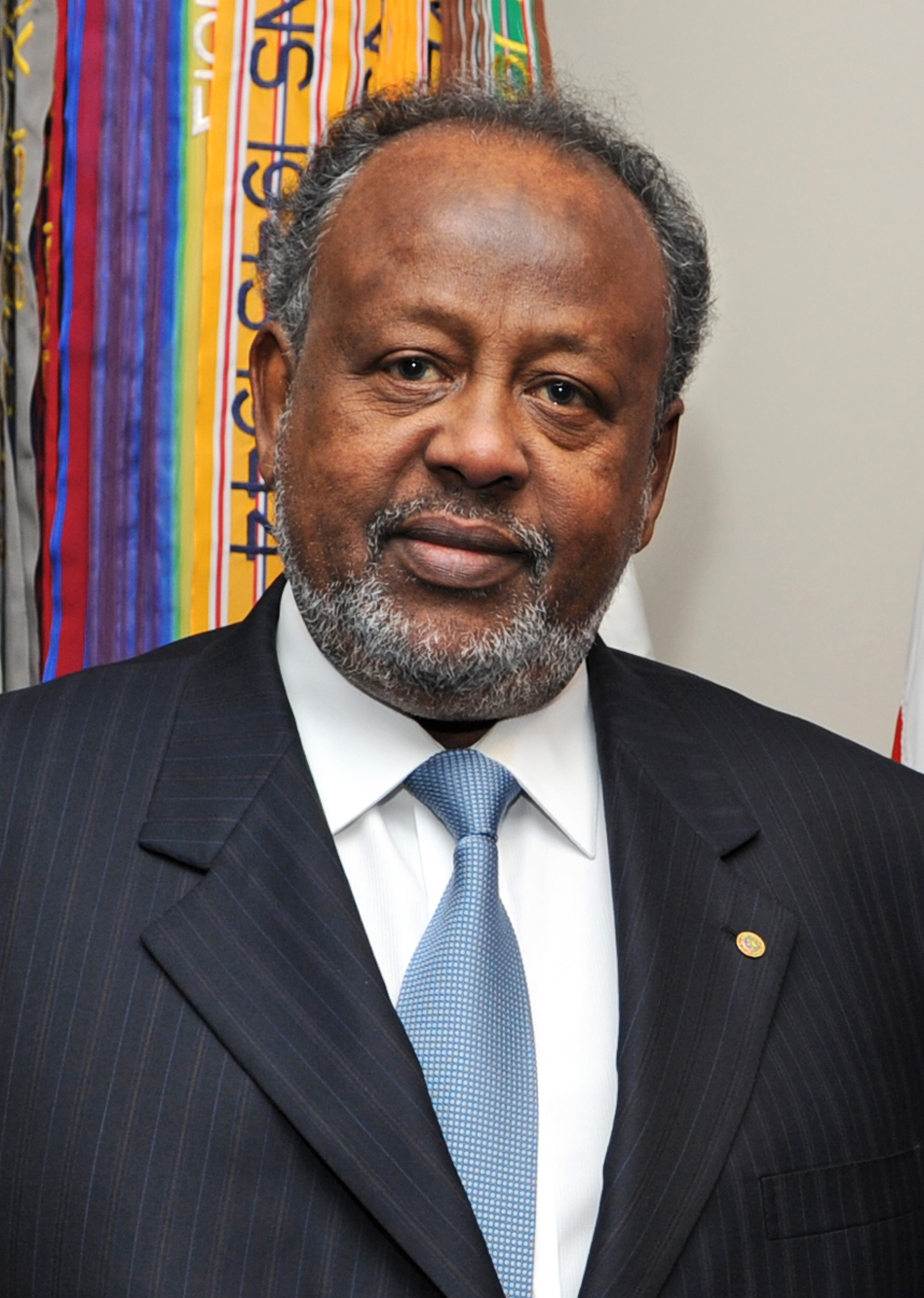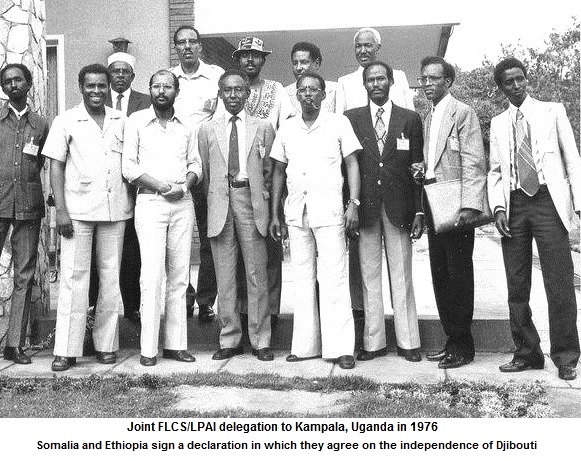|
2003 Djiboutian Parliamentary Election
Parliamentary elections were held in Djibouti on 10 January 2003 to elect the National Assembly of Djibouti. The ruling coalition of President Ismail Omar Guelleh won all 65 seats in the election, defeating an opposition coalition. The elections were the first in which women were elected to parliament after a new law was passed requiring a minimum of 10% male or female candidates in candidate lists. Background After being a one-party state from 1977 to 1992, limited opposition was allowed in the previous two parliamentary elections. However, the 1997 elections still saw supporters of President Guelleh win every seat in Parliament. The situation was changed for the 2003 elections, with a law that had previously restricted the number of political parties to four expiring, and full multi-party democracy was allowed. Electoral system Members of the National Assembly were elected from five constituencies with different numbers of seats. In each constituency, the party or coalitio ... [...More Info...] [...Related Items...] OR: [Wikipedia] [Google] [Baidu] |
National Assembly (Djibouti)
The National Assembly, formerly known as the Chamber of Deputies, is the unicameral legislative branch of the government of Djibouti. Overview It consists of 65 members – 30 Somali (21 Issa) and 30 Afar – elected to serve five-year terms in multi-seat (4 to 37 each) constituencies. The first free multi-party parliamentary election since independence (1977) was held in 2003, with the ruling coalition, led by the People's Rally for Progress (RPP), receiving 62.7% of the vote. Idriss Arnaoud Ali was President of the National Assembly from 2003 until his death in 2015. He was succeeded by Mohamed Ali Houmed. For its entire existence, the National Assembly has been dominated by the Popular Rally for Progress, which is presently the senior partner in the Union for a Presidential Majority coalition. From 1981 to 1992, the RPP was the sole legal party. Even after opposition parties were legalized in 1992, the RPP won every seat in the legislature. From 1997 onward, it fought e ... [...More Info...] [...Related Items...] OR: [Wikipedia] [Google] [Baidu] |
People's Rally For Progress
The People's Rally for Progress ( ar, التجمع الشعبي من أجل التقدم; french: Rassemblement populaire pour le Progrès, RPP) is a political party in Djibouti. It has dominated politics in the country since 1979, initially under the rule of President Hassan Gouled Aptidon. Today it is led by President Ismaïl Omar Guelleh and is in a coalition government with Front for the Restoration of Unity and Democracy (FRUD) and other parties. The RPP tends to hold more influence among the Issa population. The RPP was founded in Dikhil on March 4, 1979."Récit d’une journée commémorant les 25 ans d’existence du RPP" ''La Nation'' (Djibouti), March 8, 2004 . It was declared the sole legal party in October 1981, retaining this status until multiparty politics ... [...More Info...] [...Related Items...] OR: [Wikipedia] [Google] [Baidu] |
Unemployment
Unemployment, according to the OECD (Organisation for Economic Co-operation and Development), is people above a specified age (usually 15) not being in paid employment or self-employment but currently available for work during the reference period. Unemployment is measured by the unemployment rate, which is the number of people who are unemployed as a percentage of the labour force (the total number of people employed added to those unemployed). Unemployment can have many sources, such as the following: * new technologies and inventions * the status of the economy, which can be influenced by a recession * competition caused by globalization and international trade * policies of the government * regulation and market Unemployment and the status of the economy can be influenced by a country through, for example, fiscal policy. Furthermore, the monetary authority of a country, such as the central bank, can influence the availability and cost for money through its moneta ... [...More Info...] [...Related Items...] OR: [Wikipedia] [Google] [Baidu] |
Poverty
Poverty is the state of having few material possessions or little income. Poverty can have diverse social, economic, and political causes and effects. When evaluating poverty in statistics or economics there are two main measures: '''' compares income against the amount needed to meet basic personal needs, such as [...More Info...] [...Related Items...] OR: [Wikipedia] [Google] [Baidu] |
Economic Development
In the economics study of the public sector, economic and social development is the process by which the economic well-being and quality of life of a nation, region, local community, or an individual are improved according to targeted goals and objectives. The term has been used frequently in the 20th and 21st centuries, but the concept has existed in the West for far longer. " Modernization", " Westernization", and especially " industrialization" are other terms often used while discussing economic development. Historically, economic development policies focused on industrialization and infrastructure; since the 1960s, it has increasingly focused on poverty reduction. Whereas economic development is a policy intervention aiming to improve the well-being of people, economic growth is a phenomenon of market productivity and increases in GDP; economist Amartya Sen describes economic growth as but "one aspect of the process of economic development". Economists primarily focus ... [...More Info...] [...Related Items...] OR: [Wikipedia] [Google] [Baidu] |
Djiboutian Civil War
The Djiboutian Civil War (also known as the First Afar insurgency) was a conflict in Djibouti, lasting from 1991 to 1994 and resulting in thousands of fatalities. This uneven power sharing between the Issas and Afars led to the Civil War that ravaged the country for three years. Background On 11 March 1862, the French Government made an agreement with the Afar Sultan Raieta Dini Ahmet. Ahmet sold his territory of Obock for 10,000 thalaris, around F55,000. This was the start of the French colonisation era in the region, the treaty was used by a captain of the Fleuriot de Langle, to colonise the south part of the Tadjoura Gulf. Since at least French rule, first as French Somaliland and then as French Territory of the Afars and the Issas, there have been ethnic tensions in Djibouti between the Issas, and the Afars. Following independence in 1977, the Issas-dominated People's Rally for Progress party had ruled Djibouti, and since 1981, had ruled it as a one-party state with the ... [...More Info...] [...Related Items...] OR: [Wikipedia] [Google] [Baidu] |
Front For The Restoration Of Unity And Democracy
The Front for the Restoration of Unity and Democracy (french: Front pour la Restauration de l'Unité et de la Démocratie, ar, الجبهة من أجل استعادة الوحدة والديمقراطية) is a political party in Djibouti. It is aligned with the interests of the Afar people who live in that country, although it has supporters residing outside of Djibouti. Formation and rebellion Rebellion against the government Three Afar groups—Action for the Revision of Order in Djibouti, the Front for the Restoration of Right and Equality, and the Djibouti Patriotic Resistance Front—merged in 1991 to form FRUD. In late 1991, FRUD launched a rebellion against the Issa-dominated government. Nearly 1,000 people died during the conflict until 1994. New insurgency (1994-2014) After the rebellion, the FRUD-C (Front pour la restauration de l’unité et de la démocratie – Combattant, or Front for the Restoration of Unity and Democracy – Combatant; alternatively called ... [...More Info...] [...Related Items...] OR: [Wikipedia] [Google] [Baidu] |
Aden Robleh Awaleh
Aden Robleh Awaleh ()(1941 – 31 October 2014.) was a Djiboutian politician and President of the National Democratic Party (PND).''Political Parties of the World'' (6th edition, 2005), ed. Bogdan Szajkowski, pages 180–181. He was a member of the National Assembly of Djibouti. Awaleh, an Issa, was born in Ali-Sabieh. After secondary studies in Djibouti, Aden Robleh Awaleh studied law in Bordeaux and then in Paris between 1963 and 1968. He was secretary general of the association of Djiboutian students and interns in France from 1965 to 1967. At the end of his university studies, Aden Robleh Awaleh returned to Djibouti at the beginning of 1969, he went to Somalia in 1969 and became the leader of the Front for the Liberation of the Somali Coast (FLCS). As a result of his activities, he was convicted of "endangering state security" ''in absentia'' by the French authorities in 1970 and sentenced to 27 years in prison. He was later arrested in Somalia in 1975 for "anti-revoluti ... [...More Info...] [...Related Items...] OR: [Wikipedia] [Google] [Baidu] |
Djibouti Union For Democracy And Justice
The Djibouti Union for Democracy and Justice () () is a political party in Djibouti. History The party was founded in 2002 when a restriction of the 1992 constitution was removed allowing for more than just 4 political parties. under the leadership of Ilaya Ismail Guedi Hared, a former cabinet director for President Hassan Gouled Aptidon. The party's secretary general, Farah Ali Waberi, resigned in 2005 to protest the Union for Democratic Change's (UAD's) decision to boycott the 2005 Djiboutian presidential election. The party opposed the 2010 amendment to the constitution that allowed Ismaïl Omar Guelleh to run for a third term. Hared's niece, Zahra Guedi was elected to lead a UAD diaspora group in Paris in November 2013. The party ran in a coalition with the Djibouti Party for Development in 2018 winning several seats in the National Assembly. 2023 election During the 2023 Djiboutian parliamentary election, all opposition political parties boycotted the election to prote ... [...More Info...] [...Related Items...] OR: [Wikipedia] [Google] [Baidu] |
Djibouti Party For Development
The Djibouti Party for Development () () is a political party in Djibouti, led by Mohamed Daoud Chehem. In the parliamentary election held on 10 January 2003, the party was part of the Union for a Democratic Change (''Union pour l'Alternance Démocratique''), which won 37.3% of the popular vote but no seats in the National Assembly In politics, a national assembly is either a unicameral legislature, the lower house of a bicameral legislature, or both houses of a bicameral legislature together. In the English language it generally means "an assembly composed of the rep .... It is also aligned with the Union for National Salvation. Political parties in Djibouti {{Djibouti-stub ... [...More Info...] [...Related Items...] OR: [Wikipedia] [Google] [Baidu] |
Movement For Democratic Renewal And Development
The Movement for Democratic Renewal and Development (french: Mouvement pour le Renouveau Démocratique et le Développement), ( ar, لحركة التجديد الديموقراطي والتنمية) is a political party in Djibouti. It was originally known as the Party for Democratic Renewal. The PRD of Djibouti was created with the purpose of forming a national democratic party. The PRD gained popularity at the collapse of the communist bloc and the end of the Cold War. It used its military power gained through its coalition with the Front for the Restoration of Unity and Democracy (FRUD) and the Movement for Peace and Reconciliation (MPR). The current leader of PRD is Abdillani Hamariteha. The PRD was founded by Mohamed Djame Elabe, a former minister in the government, on 27 September 1992; [...More Info...] [...Related Items...] OR: [Wikipedia] [Google] [Baidu] |
Republican Alliance For Democracy
The Republican Alliance for Democracy (french: Alliance Républicaine pour la Démocratie) ( ar, التحالف الجمهوري من أجل الديمقراطية) is an opposition political party in Djibouti, founded by Ahmed Dini Ahmed. In the parliamentary election held on 10 January 2003, the party was part of the Union for a Democratic Change (''Union pour l'Alternance Démocratique''), which won 37.3% of the popular vote but no seats in the National Assembly In politics, a national assembly is either a unicameral legislature, the lower house of a bicameral legislature, or both houses of a bicameral legislature together. In the English language it generally means "an assembly composed of the r .... External links Official website Political parties in Djibouti {{Djibouti-stub ... [...More Info...] [...Related Items...] OR: [Wikipedia] [Google] [Baidu] |



